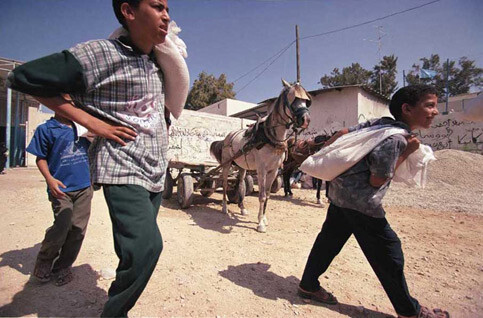UN Food and Agriculture Organization 13 October 2005

Physical and economic access to food rather than the availability of food was identified as the major constraint. (Ronald de Hommel)
ROME — Better information on the number and the state of poor people without access to adequate food in the West Bank and Gaza Strip will help reduce the number of food insecure people there, FAO said today.
A new FAO project aims to provide the Palestinian Authority with updated information on poor households and groups and the causes of their food insecurity. This analysis will enable decision-makers to better target vulnerable groups and improve the design and implementation of emergency interventions and sustainable development programmes.
40 percent of population food insecure
Food insecurity is a reality for 40 percent of the 3.6 million people living in the West Bankand Gaza Strip and a near constant threat for an additional 30 percent of the population, according to a 2003 FAO assessment.
Physical and economic access to food rather than the availability of food was identified as the major constraint by the report, which noted that restrictions on the movements of goods and people, loss of work and income, depletion of resources and assets, and exhaustion of coping strategies all had created food insecurity.
“Data collection to identify food availability, access to food and nutritional problems is usually ad hoc and carried out by various parties often using different procedures, methods and approaches, which cannot always be compared,” said Christian Miczaika of FAO’s Special Emergency Programmes Service. “A better understanding of the food security and nutrition situation of the population is necessary for developing a food security strategy.”
“The idea is to provide user-friendly, up-to-data analysis of information so that decision-makers can plan appropriate, effective food security and nutrition interventions,” he said.
The project will also train selected staff from key ministries in the collection, analysis, publication and use of food security information and promote greater awareness of food security issues among decision-makers.
The project is funded by the European Commission with around Euro 850 000. It builds on an earlier Australia-funded project to develop information systems for improving nutrition and food security in the West Bankand Gaza.
More Information
Related Links